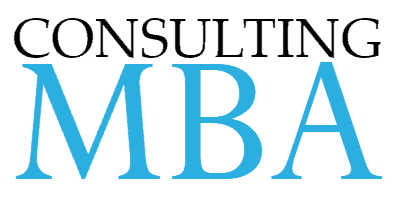I was recently asked, “What are some best practices that you follow for planning out our days?” Since this is so commonly questioned, I thought it would be appropriate to write about it.
It comes down to a few key principles — and they aren’t the little tricks you’ll read about in those “five time management tips” articles. Those are nonsense. Damn fun to read, but nonsense.

Principles of Real Time Management for Entrepreneurs
Guiding Principles are those binary philosophies that address how you approach various things in life. It is only appropriate that you develop and apply your own relative to our finest resource in this life: our time.
Below are principles that I apply. Perhaps you can develop your own, using these as your springboard.
Principle 1: Schedule Recurring Events to Take Them Out of Mind
You know those things that you do on a regular basis? Why would you possibly schedule them out individually?
There are tasks and activities that I have recurring each day, week, month, and quarter — or whatever other period makes sense. Bi-weekly client calls and even bi-annual outreach to certain contacts. It’s all set in my calendar so that I don’t have to think about it: I just look.
I also have two monthly events that I have used strategically to remove unnecessary thinking. For example, these monthly “events” include:
- reaching out to certain family
- organizing files left dormant on my desktop
- clearing through my email drafts
- checking credit card statements
They aren’t glamorous activities, and you can argue they’re “low-efficacy”, but they are distractions. If I didn’t organize them to a schedule, I would check my credit card statements more than needed, or too infrequently and miss the fraud charge (which is what started that practice). Same goes for family, because time moves quickly, and it’s easy to end up out of touch.
This isn’t necessarily about being the most effective person. It’s about removing excess and unnecessary thinking, so that you are posed to be the highly effective person in your focused time.
Principle 2: Have a Single Theme for Each Working Day
Shifting where your mind is from one moment to the next is exhaustive and ineffective.
In other words: a four-hour block of focused time is not equal to two two-hour blocks of time. Even if they directly follow each other. If what your mind has to change how it is thinking, what it is doing, and what it is seeking to accomplish or influence, there’s a penalty paid.
How this translates for the average consultant or entrepreneur is to identify what your theme for each day will be. Is it a client services day where you are making significant progress on projects? Is it a sales day where you are reaching out to new prospects, conducting consultations, and getting deals closed? Is it a marketing day where you are developing your own campaigns or thought leadership pieces?
Whatever it is, you will find yourself making far more progress week-over-week if each day is separated by a theme, rather than splitting in a bit of time for each throughout the week. I have done and tested both ways myself and wish I realized the different in focused days long ago.
There can always be exceptions, like on a client services day, you shouldn’t ignore handling the sign off on the new deal coming in the door. But for your own efficacy, you must define what each day means to you and your business.
Principle 3: Plan Your Week in Advance
I started with Sundays and recommend that typically. Today, I handle that on Monday, because I followed Principle 1 and 2 well enough that my planning becomes much more simplified.
I am experimenting now with a written journal. I think the tactile nature of writing by hand will provide some personal enjoyment, and perhaps some more thoughtful planning. However, I’ve made it this far without doing so.
In the plan of your week, you should have recurring events fitting the theme (such as Tuesdays are Client Work days, so they are already pre-scheduled). You can go in, confirm the flow of your week, and make adjustments as needed.
You may also write in specific activities to be clearer on what each day consists of. For example, instead of Wednesday 9am – 11am being “Sales Development” time, it may be updated to “Sales Dev – Complete Proposal for ACME Co.” You can front-load these specifics week-by-week, and then make fine-adjustments in your daily plans.
Principle 4: Plan Your Day in Advance
With the week established, your job isn’t done yet. I like to plan my next day during the early afternoon, or during your afternoon slump, if that hits you.
I find it energizing and helps to create some clarity in my mind when I do it then. I used to do this at the end of my workday, but I like the flexibility of having it done a little earlier in case I decide to head out early or need to run on the fly, because life happens. Energy, clarity and flexibility is enough for me to justify the afternoon schedule. But, find what works for you.
In planning day-by-day, you can handle and accommodate any of the surprise meetings, events, or needs that arise in your week. More importantly, you can align your mind to begin shifting into the mode (or theme) that comes up tomorrow.
This provides a smooth transition into the next day of work. It also, as mentioned at the end of the previous principle, is a moment where you can address precisely how your time will be spent by not just thinking of a time block as “Client Work”, but specifically what work is to be done. Are you launching an advertising campaign? Developing marketing plans? Handling project management for various clients? Be specific now and you’ll know exactly what to do tomorrow.
Principle 5: Aim for 1-3 Significant Accomplishments Each Day
Trying to do four to six major things each day is overwhelming, frustrating, and misleading. If you are able to accomplish six big things in a day, they weren’t big and you need to reevaluate how you are spending your time.
Furthermore, I find it satisfying to know that some days, I just have a single thing I need to do. And, if I accomplish it, I can go home, or onto whatever I want to do next. Having few but meaningful requirements of yourself ensures real progress while maintaining the integrity of what you value: your flexibility and freedom.
You should be able to
Principle 6: Organize Your Days for Focus and Processing
Similar to my thoughts on having fewer but more meaningful accomplishments each day, if you are able to “work” 16 hour days seven days a week, you probably are not doing anything too meaningful, nor are you building a business, but building an excessive and unclear job for yourself.
You should be able to compress your real, significant work into three focused days. These can be 16 hour days, if you wish, but I find 10-12 hours a sufficient “max” for most people. And, six to eight hours is okay, too.
I make my days of focus Tuesday to Thursday. I find it works best for me because that leaves Monday as my ramp-up day and Friday as my cooling-off for the week.
Accordingly, Monday and Friday are processing days. These are for all the non-essential activities. That may mean personal items are mixed in (particularly on Fridays), or the non-sales calls and meetings. Professional volunteer time happens on these days. Clearing through newsletters and non-essential emails from the week.
For me, I do my weekly planning and prep on Mondays, but again, it may be better for you to handle it Sundays. To your discretion, as everything is.
Finding the Time Management Principles for You to Operate By
I’ve shared the things that guide my way of operating:
- Schedule Recurring Events to Take Them Out of Mind
- Have a Single Theme for Each Working Day
- Plan Your Week in Advance
- Plan Your Day in Advance
- Aim for 1-3 Significant Accomplishments Each Day
- Organize Your Days for Focus and Processing
Time management has been important to me for years, if not for the last decade. Everything has been scheduled in my calendar at some point: all my meetings, first dates, doctors appointments, sales activities, and even sleep.
I believe it’s one of the most important things for any entrepreneur because it protects and optimizes our most valuable resource: time. But, rather than getting lost in the tips and tricks, we need to build systems that optimize efficacy over efficiency. Being efficient will find its way if you focus on being effective in what you do.
Start with how you think about managing your own time and commit to the practice.

